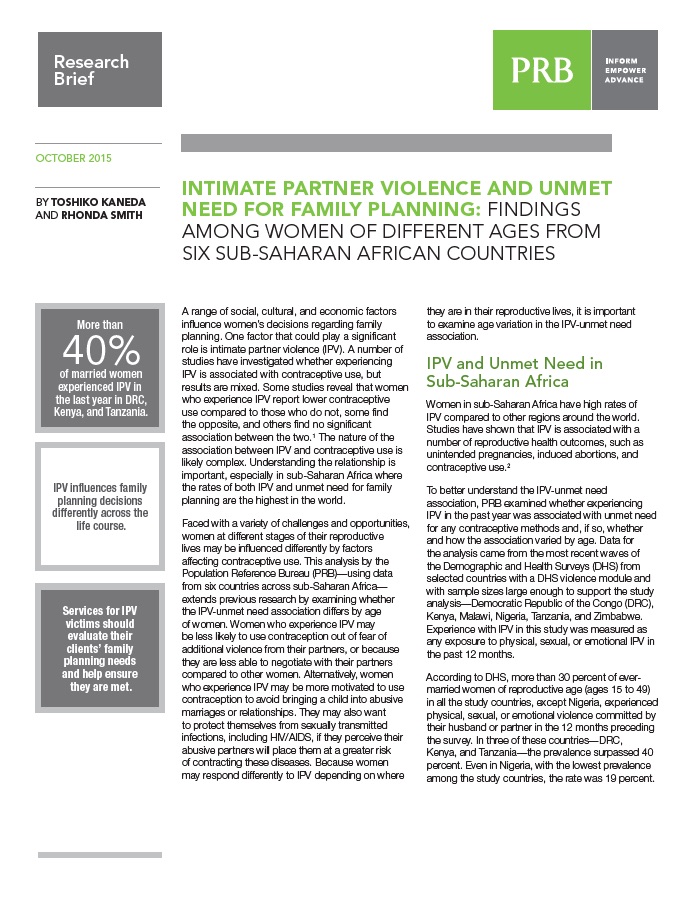
Exploring Intimate Partner Violence and Family Planning
A new PRB research brief, Intimate Partner Violence and Unmet Need for Family Planning, presents the findings of a new analysis on the association between intimate partner violence (IPV) and unmet need among women of different ages using DHS data from six countries: Democratic Republic of the Congo (DRC), Kenya, Malawi, Nigeria, Tanzania, and Zimbabwe. The study further examines whether key characteristics of women, such as education, household wealth, and household decisionmaking power, among others, explain why a recent IPV experience (in the past 12 months) and unmet need may be associated and why it may vary by age. The analysis concludes that among currently married women with demand for family planning, older women with IPV experience have significantly higher unmet need compared to other women without IPV in DRC, Kenya, and Tanzania. These women are a particularly high-risk group in need of contraception that is often overlooked in family planning services. In contrast, young women with IPV experience have significantly lower unmet need compared to other women without IPV in Malawi and Nigeria. Although experiencing IPV among young women in our study sample is not associated with an increased level of unmet need, they still have the highest unmet need among women with IPV across all ages in most countries examined. The findings suggest that experiencing IPV may influence family planning decisions in different ways across the life course—underscoring the importance of understanding the characteristics of women at different reproductive life stages with both demand and IPV as well as other possible barriers to contraceptive use.
In addition, PRB produced six complementary country-specific fact sheets entitled Youth Reproductive Health: Satisfying Unmet Need for Family Planning for Ethiopia, DRC, Malawi, Nigeria, Tanzania, and Zimbabwe. Each fact sheet presents a list of current youth reproductive health indicators for ages 15 to 24, depicts the current situation of unmet need in each country, describes the top barriers to contraceptive use among young women with unmet need (a special PRB analysis), and the policy and program implications of the evidence.
These materials were funded by The David and Lucile Packard Foundation.

 ">
">